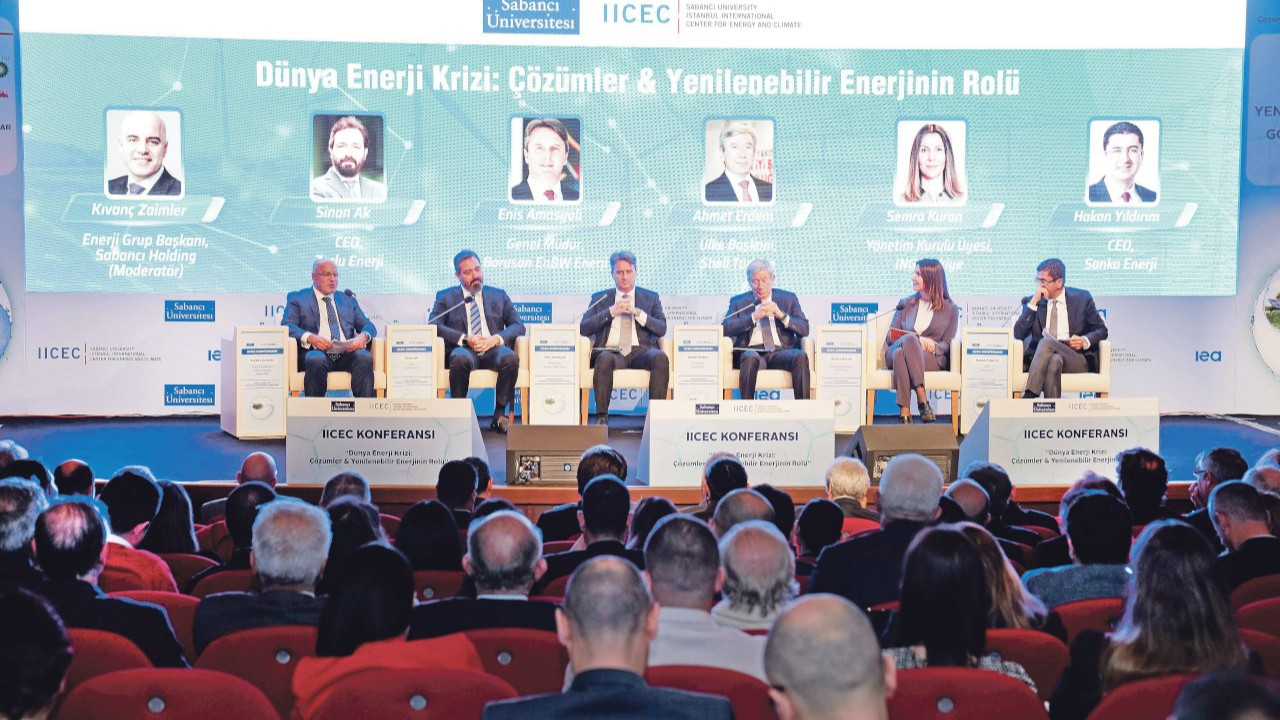
At the conference, Sabancı University Founding Board of Trustees Chair Güler Sabancı stated that IICEC is a leading model and center in Turkey in terms of its work within the ecosystem and the growth of its sphere of influence, and this year, within the scope of the Outlook series, it focuses on renewable energy, one of Turkey’s most important opportunity areas. Stating that he completed a first and pioneering work in the sector, which offers an analytical perspective, with a participatory approach with the stakeholders of the sector, he continued as follows: “From now on, Turkey will continue its efforts to pave the way for energy and climate policies, and to guide decision makers and all stakeholders. ”
2023 will be more difficult
Stating that 2023 will be much more difficult due to the global energy crisis and that 2022 can be expected, President of the International Energy Agency (IEA) and Honorary President of IICEC Dr. Fatih Birol pointed out that Turkey has made significant leaps in renewable energy in this process. Birol, stating that they aim to grow by 65 percent in renewable energy in the next 5 years in Turkey, said, “This means entering the top 4 in Europe and the top 10 in the world.” IICEC Director Bora Şekip Güray informed that they have presented 7 concrete suggestions to all stakeholders according to the Turkey Renewable Energy Outlook 2022 Report and said, “According to our study; Until 2050, the proportional contribution of renewable energy in Turkey’s electricity generation may double, and the contribution of renewable energy in the total energy system may increase more than four times. We see that one unit of electricity investment increase will create ten units of savings in imported fossil fuel and emission costs.” Güray said that, according to IICEC’s Turkey Renewable Energy Outlook study, in the High Scenario in 2050, nearly 90% of electricity production can be met from renewable energy, adding, “While the fastest growth is realized in solar and wind, the contribution of these two sources to electricity production will increase proportionally by four times in 2050. reaches two-thirds per year. In IICEC analysis, while the weight of fossil fuels has decreased to a large extent, this development offers critical gains to Turkey’s energy economy and environmental performance. Emphasizing that investments to be made especially for a renewable energy-oriented and efficient electricity system will greatly reduce Turkey’s fossil fuel imports and emission inventory, Güray said, “This will also be the most important supporter of a safer and cleaner energy future. One unit of electricity investment increase will create ten units of savings in imported fossil fuel and emission costs. To support efficient and strong growth in renewable energy; The development will be critical in market development, investment climate, financing, networks, technological development and strategic goals.”
7 concrete recommendations from IICEC
IICEC, ‘Turkey Renewable Energy Outlook’; Here are 7 concrete suggestions that Turkey offers to all stakeholders, including the focus on human resource development, for utilizing high growth potential in renewable energy and related technologies, providing multidimensional opportunities for energy security, clean energy transformation, competitive and technology-oriented industrial development:
one Achieving a total renewable energy installed power of over 250 GW, a renewable electricity generation share of more than 85%, and a 50% share of total renewable energy in final energy demand by 2050, and determining the roadmaps for this on the basis of resources, technologies and sectors.
2 Developing sustainable investment and financing models for an efficient, in-depth, cost-reflecting, predictable electricity market operation, thus ensuring strong growth in the project stock.
3 Strengthening the capacity and flexibility of the networks, which form the backbone of the electricity system, with technology-oriented investments supported by long-term dynamic planning.
4 Continuing the development in wind and solar technology in a way that supports the sustainability of supply chains and Turkey’s being a regional clean energy technologies production base; implementation of developments in energy storage and green hydrogen production technologies.
5 Promote energy security and the clean energy transition by ensuring that in addition to clean electrification in buildings, industry, transport and other energy-consuming sectors, the direct contribution of renewable energy is increased at least threefold.
6 Transforming growth in renewable energy ecosystems into high value-added opportunities by leveraging the energy efficiency potential and digitalization solutions across the value chain.
7 Developing qualified human resources and entrepreneurial ecosystems that will support strong and sustainable growth and competitiveness in renewable energy.
